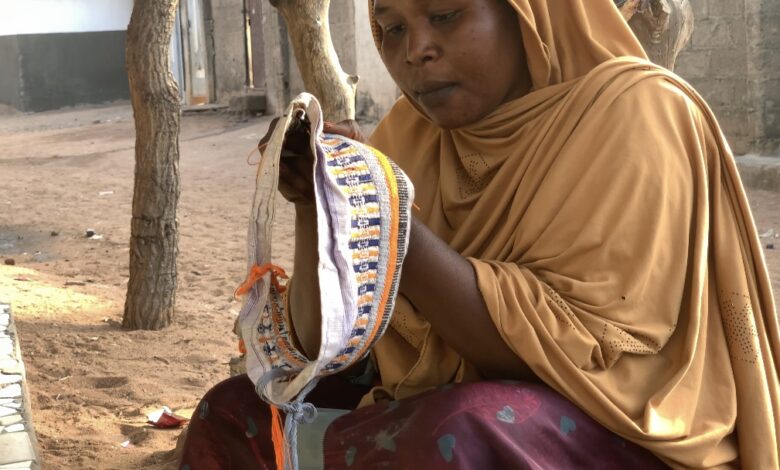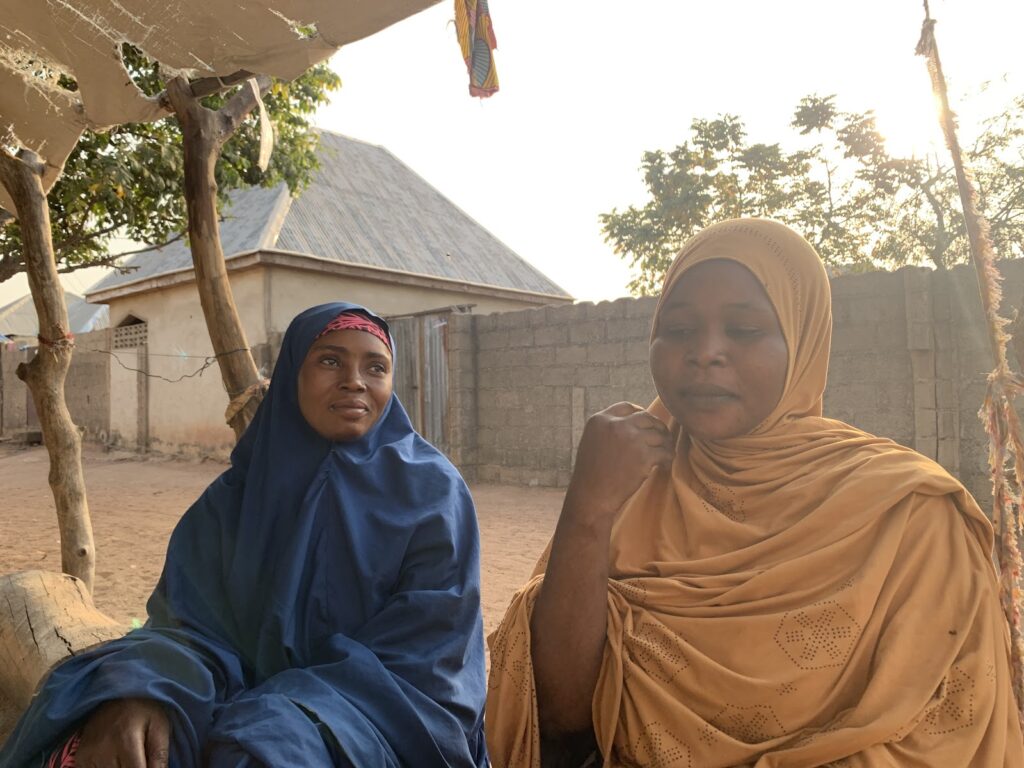Gaining Autonomy But Losing Intimacy: Marriage With A Migrant
Left-behind wives in Yolde Pate, a community in Northeast Nigeria, admit losing interest in their marriages but stay married nonetheless due to having autonomy and free will in their households.

Zainab, 35, has been left behind in Yolde Pate, a community in the northeastern state of Adamawa, while her husband finds work in another part of the country.
Two years have passed since she last saw him.
During these two years, Zainab fell sick and a cyst was found in her left breast. While ill, she gave birth to a daughter who nursed on only one breast until she was weaned off.
Where was her husband in all of this? “He only sent money when he could,” Zainab replies, adding that his absence does not bother her anymore.
Across rural northern Nigeria, a common migratory practice known as ‘Ci Rani’ in Hausa separates rural dwellers, especially farmers and herders, from their wives and families for up to seven months when the hot-dry season persists and farming activities slow down.
This move is primarily so they can keep themselves occupied by taking menial jobs in urban areas before the next rainy season.
Although migrant husbands leave with the promise of providing continual sustenance for their families back home, they usually fail to do this. Many left-behind families become vulnerable when the men leave and do not return.
In Adamawa, where HumAngle spoke to displaced and pregnant women in Girei and Mayo Balwa whose husbands migrated, the common worry they expressed was that of enduring hunger due to having less to eat and going through health risks while the men are away.
In Yolde Pate, left-behind wives speak of gaining autonomy over their households when their husbands leave. They, however, face a different challenge.
Out of sight, out of mind
The general body of literature regarding migrant husbands, especially those that move from rural to urban areas in Nigeria, spotlights the plight of families who have been left behind and how the matriarchs of the households are burdened with domestic responsibilities amid also having to find means to support themselves when husbands, fathers, or breadwinners are inaccessible.
While this exists, left-behind wives also experience losing interest in their migrant husbands but staying married due to having financial autonomy over their households. Zainab explains that her husband being out of reach has made her feel as if he is “useless”.
“If I choose to leave the marriage and seek a divorce from him, I will be moving out of my home and dividing my family. I do not have to see him all the time and that is okay for me,” she adds.
Rahmatu, another woman who lives with her five children in Yolde Pate while her husband finds work elsewhere, tells HumAngle how his move was worrisome in their first years of marriage. Amid yearning for his presence in the household, she struggled financially.
“I would complain to my parents about it. I would tell them that this is not the marriage I want,” she says, but “they would insist that I stay and look after my matrimonial home.”
When she and Abdullahi got married, Rahmatu was 16 and was happy to be with him. At that time, Abdullahi farmed during the rainy season and rode a motorcycle taxi within Yola, the state’s capital, during the dry season.
But circumstances changed a year into their marriage when the state government banned motorcycles due to the rising cases of violent crimes. Rahmatu recalls how she was pregnant with her first child then, and Abdullahi suggested he would move to neighbouring Gombe state – also in the Northeast – to find work before it was time to farm again, but he did not return till the following year.
“It felt like losing a companion, but you know he is not dead and he should be with you,” she explains, adding that nobody sees the psychological impact.
Currently married for 12 years, Rahmatu says she only sees her husband twice every year, and for three days at most. “I can count the number of times I have set my eyes on him since we married.”

Looking forward to husband’s departure
Zainab’s husband was a goat herder before he migrated to Lagos state, southwest Nigeria, where he drives a cab. Through the years of being left behind, she started saving from the money he sent home and began a petty trade that helps her sustain her household even with her husband’s absence.
She makes local caps to sell to the community residents while also selling children’s thrift wears. “I can make up to ₦4,ooo and save at least ₦1,ooo in my Asusu [piggy bank] daily,” she says.
Rahmatu, like Zainab, also knits local caps. “This is what I do to get money,” she says, holding up the cap in one hand and a sewing needle in another, “together with amendment tailoring where I mend people’s torn clothes.”
Despite seeing her husband only a few times a year, Rahmatu admits that when her husband is present, her entire life begins to revolve around preparing his food, making sure he is comfortable, and taking care of his general well-being.
“I try to carry out my wifely duties, but it restricts me from doing things for myself,” she explains, iterating that although her husband stays for not more than three days at a time, she looks forward to him leaving.
“I eat better food when he is around. Our children get to see their father too, but honest to God, when he is here, I cannot go out any time I want and I cannot carry out my business as I do before he arrives. I do not make money at all and I do not save. I also cannot manage the money meant for the house.”
Zainab, on the other hand, says although she doesn’t get to see her husband as often as Rahmatu, when he eventually visits, she is only excited for a day or two and then feels an awkwardness hanging above them.
“It feels like staying with someone I am not familiar with,” she says, “things have changed and he has changed in ways I cannot explain.”
Support Our Journalism
There are millions of ordinary people affected by conflict in Africa whose stories are missing in the mainstream media. HumAngle is determined to tell those challenging and under-reported stories, hoping that the people impacted by these conflicts will find the safety and security they deserve.
To ensure that we continue to provide public service coverage, we have a small favour to ask you. We want you to be part of our journalistic endeavour by contributing a token to us.
Your donation will further promote a robust, free, and independent media.
Donate HereStay Closer To The Stories That Matter




